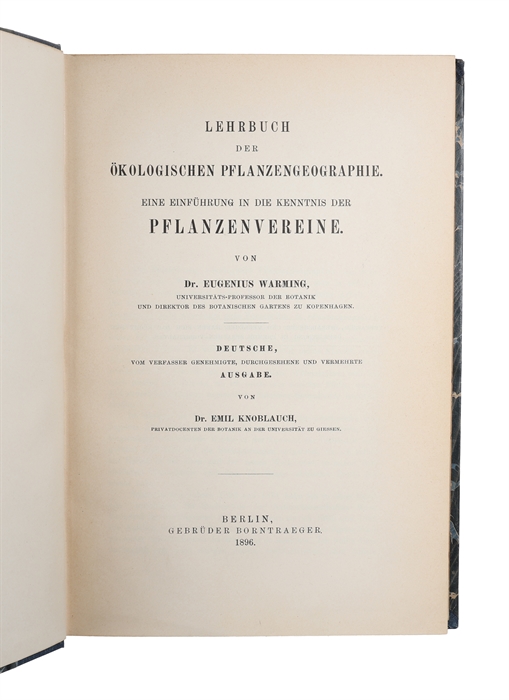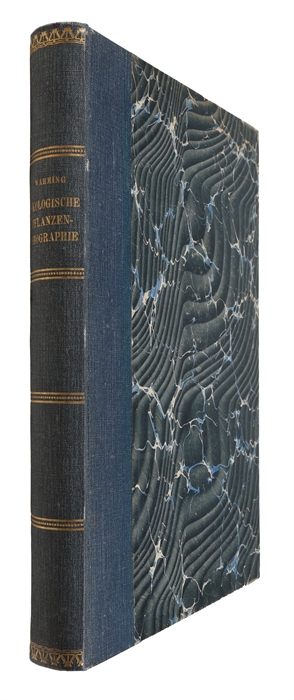FIRST GERMAN TRANSLATION
WARMING, EUG.
Lehrbuch der Ökologischen Pflanzengeographie Eine Einführung in die Kenntnis der Pflanzenvereine (...) Deutsche, vom Verfasser genehmigte, durchgesehene und vermehrte Ausgabe von Dr. Emil Knoblauch.
Berlin, Gebrüder Borntraeger, 1896.
8vo. In contemporary half cloth,. Light wear to extremities, otherwise a nice and clean copy. XII, 412 pp.
First German translation of the founding work on Plant ecology and Plant communities. "Warming was the founder of plant ecology. The term "ecology", first used by Haeckel in 1866, was introduced into botany by H. reiter in 1885M but is was Warming who made ecology a preferred field of activity for many botanists. In "Plantesamfund" (1895) - (the work offered) - he formulated the program of his research: "To answer the question: Why each species has its own habit and habitat, why the species congregate to form definitive communities, and why these have a characteristic physiognomy.". “It was Warming, in an 1895 Danish botanical textbook called Plantesamfund (Plant Communities), who defined the nature of the discipline. He pointed out that organisms, plant and animal, live in highly developed communities, the tenure of which depends on such things as temperature, rainfall, soil constitution, elevation, and countless other factors. He noted that communities change over time, moving toward what he called "climax" communities, which will remain dominant until conditions change. But he also advised that conditions will change, through wildfire, or floods, or man-made alterations, and that such changes are often irreversible, so that a forest turned into grassland will seldom revert to a forest community again.” (Linda Hall)
The book created an enormous senstaion as a new attempt at grouping and characterizing the plant communities - a new phytogeographical term by which Warming meant a group of species forming a physiognomically well-defined unity, such as a meadow. In all essentials the species of a community are subject to the same external conditions arising from the ecological factors. These factors are of a fundamental importence to the ecology ofthe individual plant and the plant community. Considering water to be the most importent factor, Warming divided plant communities into four types: hydrophytic, xerophytic, halophytic, and mesophytic."(DSB XIV, p. 181).
Order-nr.: 62378


